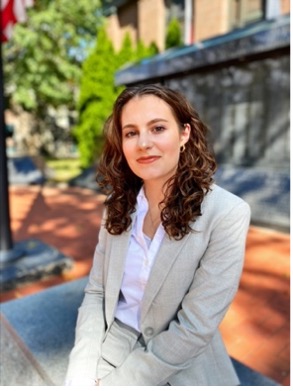"STAMPS aren't just for letters: my experience at the Marine Biological Laboratory"
By Liam Peterson, PhD, Ph.D. graduate student in the University of Rochester School of Medicine & Dentistry Pathology Program
The myHub Travel Award allowed me to attend the Strategies and Techniques for Analyzing Microbial Population Structures (STAMPS) course at the Marine Biological Laboratory in Woods Hole, Massachusetts. This course was directed by leaders in the field of microbiome studies including Amy Willis, Ph.D. (University of Washington), and Titus Brown, Ph.D. (University of California, Davis). The course consisted of didactic lecturing and laboratory instruction, which provided valuable insight on current methods used in microbiome, metagenomic, and multiomic analysis.
In order to facilitate an effective learning environment in a condensed period of time (10-day course with 13 long hours per day), each day followed a rigorous agenda. Instruction began by focusing on a particular concept, such as microbial community profiling, and the tools that researchers often employ to answer questions about their datasets (e.g., shotgun metagenomics, amplicon sequencing). We then examined the strengths and weaknesses of leveraging one technique over another (e.g., operational taxonomic units versus amplicon sequencing variants). Finally, the instructors would acknowledge that each dataset requires different considerations and thresholds according to the community one is investigating (e.g., densely colonized human gut versus sparsely colonized soil communities).
In creating the course this way, I had the opportunity to learn about techniques directly related to human health, which I will certainly use throughout my career, and was exposed to the complexities of microbial ecology. Interacting with researchers from diverse fields provided me with new perspectives on the challenges I will face investigating skin microbiome and helped me appreciate that similar challenges are faced across disciplines. For example, one of the challenges of sampling from soil in arid regions is exceptionally low microbial biomass, leading to less sequencing depth, which often requires researchers to develop genomic libraries de novo instead of relying on publicly deposited data. This is a similar challenge faced in my own field where fungal species represent a small portion of the overall biomass. This being just one example, learning from such a diverse group of individuals provided a new perspective on my approach to my studies.
Altogether, the STAMPS course was a phenomenal opportunity, both intellectually and professionally. The course directors, the invited speakers such as Curtis Huttenhower, Ph.D., who developed bioBakery (a suite of computational tools for analyzing microbial communities), and my peers were excellent resources from whom I learned so much. It was a true privilege to attend this course, and I am grateful for receiving the myHub Travel Award, which subsidized this experience.
Liam Peterson, M.S. is a Ph.D. graduate student in the University of Rochester School of Medicine & Dentistry Pathology Program
To learn more about internships or job shadowing opportunities check out the URBEST Internship & Career Exploration webpage or make an appointment with Eric Vaughn through Handshake.
Katherine Bognanno | 9/17/2024




